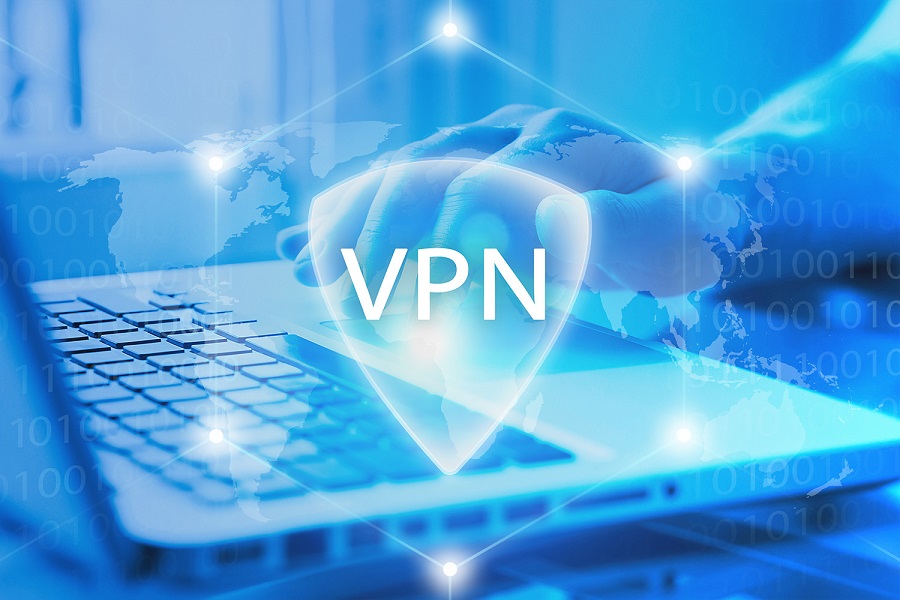One of the VPN, or virtual private network, is a secure tunnel between ONE device and the Internet. VPNs are used to protect users from information theft, espionage, censorship and other online threats.
Today, about 80% of people around the world are concerned about their online privacy. Over the next five years, experts predict that the VPN market will expand at a compound annual growth rate of around 6,39%. VPNs, for many, have become as important as antivirus software.  Various cybersecurity experts have pondered the positive impact that modern VPNs have made, affirming their ability to protect Internet users from data breaches, insecure Wi-Fi networks and Internet surveillance.
Various cybersecurity experts have pondered the positive impact that modern VPNs have made, affirming their ability to protect Internet users from data breaches, insecure Wi-Fi networks and Internet surveillance.
Here are some of the most significant benefits of using a VPN:
- A hidden IP address
Every time you use the Internet, you are given an IP address that defines the device you are using. This address is required to access online services - since your device's “fingerprint” is required for Internet browsing, in general. Unfortunately, however, this means that all of your online activities can be tracked back to the same address.
This includes all Google searches, every online purchase, every webpage you visit and even every comment you make on social media. Needless to say, there is not much privacy on the Internet today.
Fortunately, using a VPN can restore your online anonymity. A VPN disguises its IP address and sends it through one of the VPN service provider's servers. Your provider has many to choose from - and each is located in a different location around the world. So, whenever you browse, every interaction will appear derived from the VPN server's IP address - keeping yours completely anonymous.
- Data Encryption
Whenever we browse the Internet, we receive and exchange data. This is inevitable, as our devices need to communicate with websites to interact with them. As such, malicious users interested in exploring our browsing behavior attempt to do so by locating this data - then use it to identify our personal information.
A VPN helps to encrypt these footprints, makes our data tracks unreadable for anyone who is not authorized to access them. This happens at the same time that your IP address is redirected, it also ensures that if any of your data is localized - which is not likely - will be totally useless to anyone who has purchased it.
- Non-negotiable privacy
If privacy is important to you, then you should use a VPN whenever you connect to the Internet. A VPN application runs in the background of your device so that it doesn't get in the way while you use other applications, stream content and browse the Internet. And you will be at peace knowing that your privacy is always protected.
Most VPN service providers - and certainly the best - have non-negotiable rules about the privacy of your data. Because of this, your browsing sessions are completely private. And they also protect your data from Internet service providers, companies and even your local government.
Each VPN offers basic functions, such as IP address redirection and device encryption. That said, some VPNs offer a much more expansive selection of server locations to choose from. Likewise, some VPNs use much more advanced encryption technologies. We do not suggest using a free VPN, as they tend to have major security holes.
The best VPNs don't just offer services through a desktop application: they also offer mobile application versions of their software. These apps are lightweight, easy to use and practically work on their own - keeping your internet sessions secure 24 hours a day, regardless of the device you're using.







